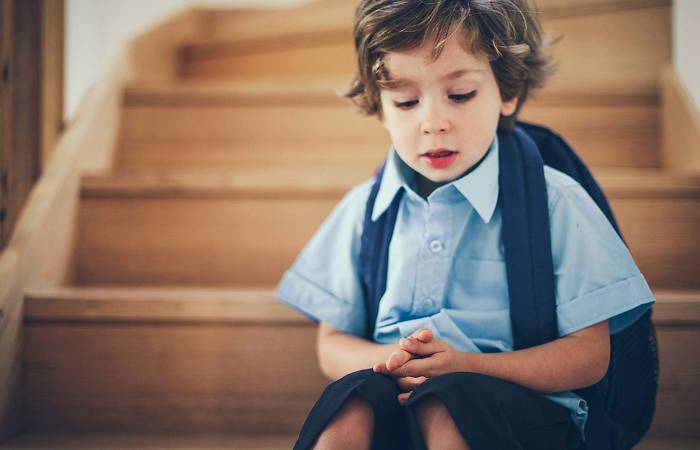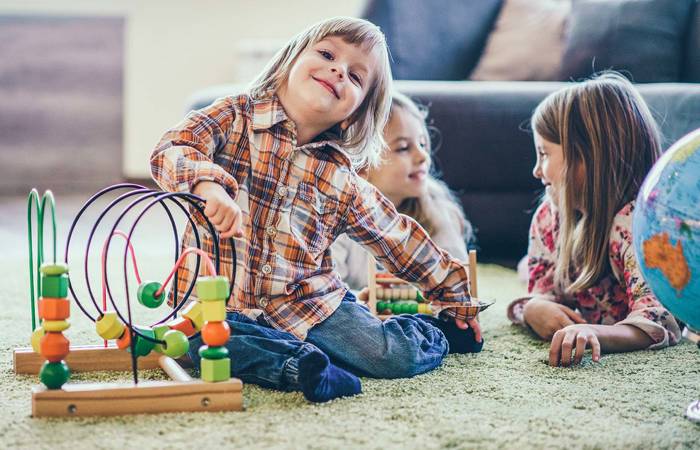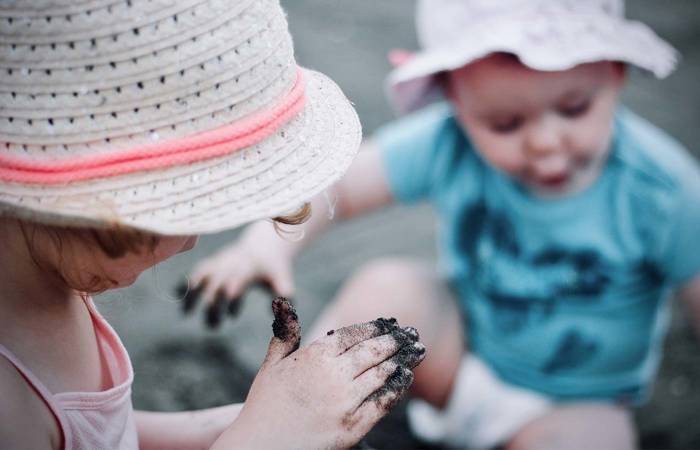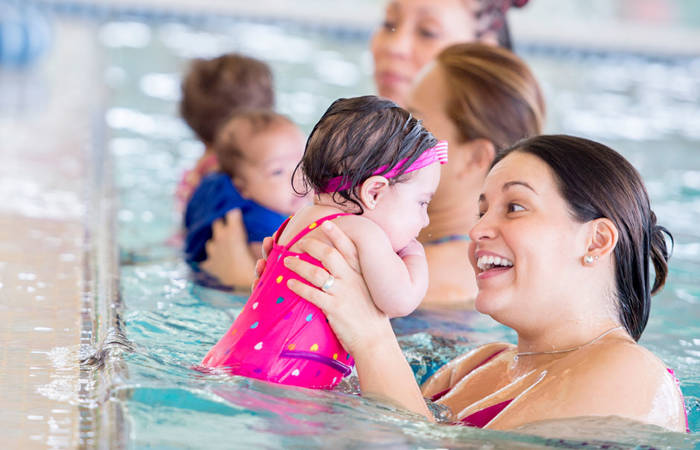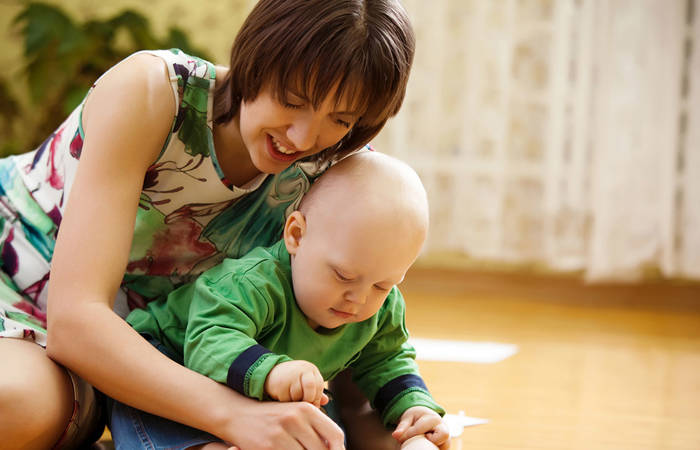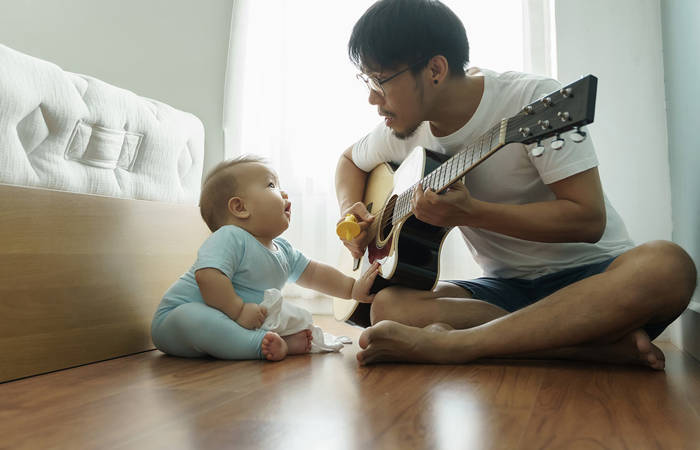Like what you see?
Sign up to receive more free parenting advice.
Thank you for subscribing to our newsletter!
Early Learning
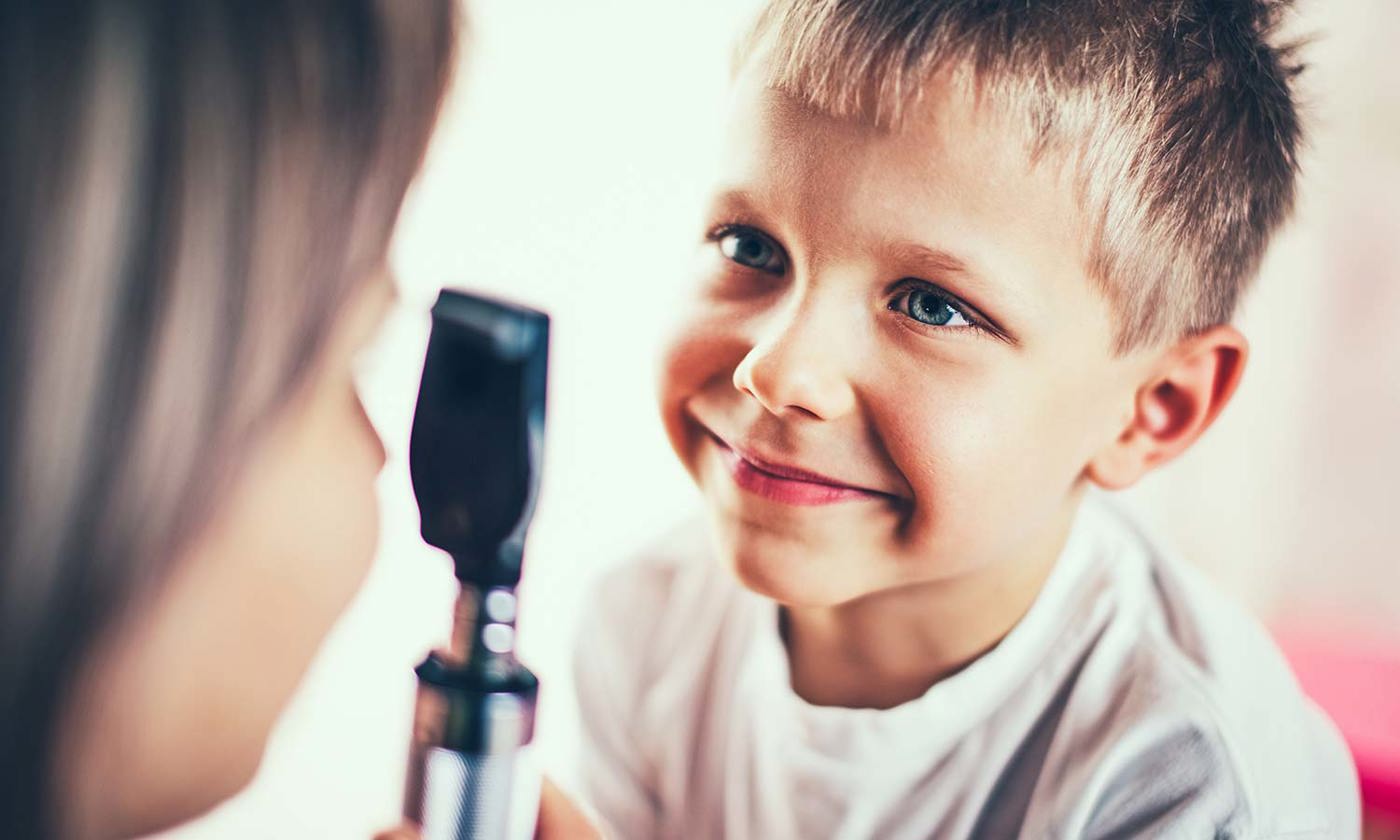
Credit: iStock.com/Imgorthand
The only thing more daunting than walking your child into their classroom on the first day of ‘big school’ is the lead up.
How do you say goodbye with as few tears as possible?
How do you make sure they find an instant best friend that will be a good influence on them?
Which shoes will last the school year?
And, seriously, what do you put in the lunch box that they will actually eat?
As part of their Back to School Health Clinic1, Queensland University of Technology offered free assessments and advice to school children and their parents.
Their experts have shared some tips on preparing your child for the big leap into school life:
Overcoming the starting school anxieties - advice from Dr Fotina Hardy, Social Work Clinic Coordinator, and Glenn Howard, Educational and Developmental Psychology Clinic Coordinator
Starting school brings with it many competing emotions for parents and their children. It is exciting yet can also be a daunting new transition. Children are easily affected by their parents’ emotions and actions. That’s why it is important to recognise and normalise your own feelings and theirs, and focus on the positives and opportunities.
Focus on the positives for your child:
- making new friends
- learning new skills
- growing up
- exciting playgrounds
- special uniform
Develop a plan for a positive drop off:
- A goodbye ritual or routine such as a high five, thumbs up, goodbye hug or special saying.
- Always say goodbye and reassure them about when you’ll be back.
- Avoid lengthy goodbyes as they may increase separation distress.
- Talk positively and enthusiastically about what they will be doing when they are away from you, for example: “I look forward to hearing about what you’re going to do today, sounds like you’re going to have some fun.”
Modelling strategies to your child to cope with worries is important to build resilience:
- Sometimes people are nervous about starting school, but we can take some deep breaths and think about all the fun things we’re going to do today.
- Having butterflies in our tummy can help us to fly through a new adventure.
- Use a “handy hand2” to recall five things they can do if they are worried (take deep breaths, use helpful/positive thoughts, think of things they can do to reward themselves for doing something tough, remember feeling worried won’t last forever, have a celebration/reward planned for after school).
- Use a “handy hand” to remember five trusted people they can talk to if they’re worried.
It’s also important for parents to take care of themselves and use their own strategies and social supports to celebrate the transition.
Remember that children’s development varies from child to child and that they will develop rapidly over the school years. Every child is different and will move at a different pace in how they settle, interact and learn.
Schools are great places to develop a range of academic, social emotional, independence, resilience, artistic, sporting, and musical skills in scaffolded and supported ways. There is something for everyone. Supporting them by normalising any fears, anxieties or uncertainty is really important, as is being there and listening
Stay up to date with the latest news and articles from First Five Years
Thank you for subscribing to our newsletter!
Lunch box and nutrition advice - Emily Gill, Nutrition and Dietetics Clinic Coordinator
- Power up those brains with a filling breakfast. Try wholegrain cereals and milk, fruit and yoghurt or eggs on toast.
- Think of a lunch box as the ‘Fab 4’: Meal + Snack + Fruit + Water Bottle
- Meal hacks: Lots of kids will be happy with a sandwich or wrap but if you are looking to mix it up, try these ideas you can make in bulk and freeze: simple homemade pizzas, cold frittata or savoury muffins. Include a vegetable or salad option and protein like cheese, egg or cold meats and you’re sorted.
- Plan ahead on snacks: Some weeks you’ll have time and enthusiasm for lunch boxes, and some weeks you won’t. Stock up with ready to go snacks like yoghurts, cheese and crackers, plain popcorn, veggies and hummus or get the kids in the kitchen to help make easy homemade muffins or pikelets.
- Keep your cool: Getting enough fluid is important to keep brains working into the afternoon. Add a frozen water bottle or ice brick to lunch boxes or cooler bags.
- When it comes to afternoon tea, go with the flow. Keep an eye on your child after school to see when their best time to refuel is. Many school starters are worn out by dinner time, so offering nourishing foods at afternoon tea can take the pressure off the main evening meal.
Advice for your child’s vision - Tina Huynh, Optometry Clinic Coordinator
- Make time to play outside after school or on the weekends. Studies have shown that spending more time outdoors decreases the likelihood of developing short sightedness.
- Slip on a broad-brimmed hat and slap on sunglasses when spending time outdoors to protect their eyes from UV damage.
- It is important to limit the amount of time your child spends looking at a computer or tablet. Take regular short breaks for at least 10 minutes every hour.
- Try not to have their book too close – use the distance from their shoulder to their elbow as a guide. Make sure the room is well-lit with plenty of light on the page and take regular breaks.
- Have their eyes checked regularly by an optometrist.
All about their feet - advice from Elizabeth Madden, Podiatry Clinic Coordinator
- Footwear should not be too tight and allow some room for growth. The bones in children’s feet are continuing to form and shoes that are too tight can cause mal-alignment and deform these bones as they develop.
- Shoes should have some stiffness and should not twist too much through the length of the shoe, as children’s feet are often very mobile and flexible.
- Excessive sole wear on any shoes should be avoided as this can cause pain in the foot, ankle and knee as the lower limb adapts to the imbalance created by the shoe.
- Sandals are better than thongs in summer for children up to the age of around eight, as they attach to the foot. Children have less muscle strength in their feet and have difficulty keeping their thongs on successfully.
- Flat feet are often part of the normal development of a child’s foot and may be a normal condition, particularly if mum and/or dad have flat feet also. If any pain in the foot or lower limb occurs or difficulty walking is experienced a podiatrist should be consulted.
Parents of kids with special needs - advice from Dr Vanessa Spiller, Psychology and Counselling Clinic Coordinator
- Create a social story (a picture book with photos of major locations and tasks) about starting school. Read it with your child regularly in the weeks leading up to school.
- Take your child to the school/centre, several times if possible. Walk them through the areas they will eat, go to the toilets and their classroom if you know it. Show them where to go when school ends. Show them drop-off and pick-up zones and practise using them.
- Make contact with school staff before your child starts if possible. Alert them to your child’s needs and discuss whether an IEP (Individual Education Plan) will be needed and how to start this process.
- Collect and make copies of any information or reports or recommendations that you have that will be useful for the teacher and support staff. Provide staff with tip sheets for best assisting a child with their needs.
- Make contact with the parents of other young people with special needs. Ask them about processes and tips and who you can talk to if things are not going to plan. They can be a great source of knowledge and support in the early days of starting school.
2 The clinic uses an activity called Handy Hand, where children draw an outline of their hand on a paper bag, decorate it and write their answers on each finger and thumb.
Quality Early Learning
Quality early learning gives children the skills to set them up for the best start to their school education. A Melbourne Institute study found that children who attended preschool led by a Diploma or Degree qualified teacher scored how many points higher on their Year 3 NAPLAN Tests?

